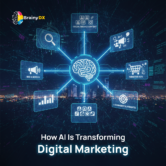
How AI is Changing the Future of Digital Marketing in 2025
How AI is Changing the Future of Digital Marketing in 2025

Artificial Intelligence is no longer a distant idea—it’s the present reality reshaping how brands connect with people. In 2025, it has become the key pillar of digital marketing that has reshaped everything from content marketing strategy and customer engagement to SEO, branding and social media marketing, AI in digital marketing is not just a trend nowadays. In this blog, we’ll dive into the role of AI in digital marketing, explore its uses, and understand the benefits of AI in digital marketing for businesses that aim to stay relevant in 2025 and beyond.
The Role and Benefits of AI in Digital Marketing
AI in digital marketing refers to the use of machine intelligence—things like natural language processing, machine learning, and predictive analytics—to perform tasks that once required human brains.
Precision and Performance
Writing emails to targeting ads to analyzing behavior in real-time, AI handles it all at a lightning speed. But more than that, it adds a layer of precision and performance that traditional marketing methods can’t match.
Improved Decision-making
The role of AI in digital marketing is centered around automating repetitive tasks, analysing insights from user behavior and improving decision-making. Marketers are now able to deliver high-target campaigns, optimize content faster, and enhance user engagement through AI-powered tools.
Scalability
One of the major benefits of AI in digital marketing is scalability. Brands can analyze massive amounts of data in real time, personalize content for different audiences, and automate everything from customer support to lead nurturing.
Efficiency
In digital marketing, AI has been efficient, it’s accurate, and it gives marketers the ability to focus on strategy instead of grunt work.
The Rise of AI in 2025 in Digital Marketing
Digital marketing in 2025 is all about real-time decision-making and personalization. A large amount of consumer data generated every second—from social media activities and consumer purchase behavior , scroll patterns of the users and voice commands. This has made manual analysis impossible. AI is like a powerhouse that interprets these data points instantly and turns them into actionable insights.
Today’s consumers expect personalized experiences at every touchpoint. They want brands to understand what they need before they even ask for it. With AI, marketers can predict behavior, recommend content, and tailor offers with insane accuracy. It’s not just about speed and efficiency anymore—it’s about relevance and depth.
SEO Is No Longer Just About Keywords
Search engine optimization in 2025 has evolved far beyond inserting keywords into content and building backlinks. Thanks to AI, SEO services now focuses more on user intent, content quality and semantic search. AI tools can analyze what kind of content ranks well, understand how users phrase their queries, especially in voice search and also suggest more effective ways to structure your content.
Even better, AI helps marketers identify what’s missing in their content strategy by analyzing SERP competitors in real-time.
Content Marketing
In 2025, generic content just doesn’t cut it. Consumers crave personalized experiences and content, and AI makes that not just possible—but effortless. By tracking user behavior, engagement patterns, and preferences, AI can help marketers create content that adapts in real-time based on who’s viewing it. With the right use of AI, whether it’s personalized blogs, landing pages, or product recommendations, content is now more dynamic and not static.
Think about how Netflix recommends your next binge or how Spotify curates your daily mix—your marketing content should feel just as tailored. AI makes it possible to speak directly to different consumer segments that helps in increasing engagement and high conversion rates along with high ROI, without increasing manual effort.
Customer Experience is the priority
In today’s modern times, a consistent customer experience is a must-have, and AI is making that journey smoother, faster, and smarter. Whether it’s through intelligent chatbots that offer 24/7 support or predictive tools that identify when a user is about to bounce from a website, AI ensures that brands can respond in real-time with the right action.
In 2025, customer interactions are deeply data-driven. AI tools detect sentiment in messages, understand the context behind a customer query, and even predict future behaviors. The result? Reduced response times, happier customers, and a customer experience that feels almost psychic.
Email Marketing
Forget the batch-and-blast email campaigns—those days are long gone. In the AI era, email marketing is smart, timely, and consumer-targeted. AI helps brands make subject lines that actually get clicked, send emails when users are most likely to open them, and personalize email content down to the individual level.
By analyzing user data and engagement history, AI makes every email feel like a one-on-one conversation. The platforms are using AI not just to optimize campaigns, but to continuously learn and evolve with each interaction. The result is higher open rates, more click-throughs and a much stronger connection with your audience.
Paid Ads
If you’re running ads in 2025 without AI, you’re probably throwing money into the void. AI takes paid advertising to the next level by automating ad placements, adjusting bids in real-time, and predicting what creative or format will work best with which audience.
Marketers can now track not just performance, but intent—meaning ads are shown to people who are more likely to convert. And AI can even suggest which platforms (Google, Meta, LinkedIn, etc.) are best for a specific campaign based on past data. Now you can say goodbye to guesswork and hello to high ROI that actually makes sense.
Predictive Analytics – The new competitive edge
What separates top-performing brands from the rest in 2025 is their ability to forecast trends and pivot before the market does. AI makes that possible with predictive analytics. Instead of waiting to see what works, marketers now know ahead of time which content, campaigns, or strategies will hit the mark.
These insights and foresights help businesses not just respond to customer needs, but anticipate them. You can identify high-value customer segments, see which channels are performing best, and even spot potential churn risks before they happen.
Voice and Visual Search are Changing How We Create Content
In digital marketing, search behavior is evolving—and fast. With the rise of smart speakers, and smart watches, and visual search tools like Google Lens, people are no longer typing queries—they’re talking or snapping pictures. AI helps marketers adapt by optimizing content for natural language queries and making visuals searchable.
It’s all about accessibility and context now. If your content doesn’t answer questions in a conversational tone or if your product images aren’t optimized for visual search, you’re missing out on traffic and conversions. In 2025, the brands that win are the ones who understand how users search—and meet their needs.
Big Brands Are Already Winning With AI
AI isn’t just for tech startups anymore. Major players are going all-in. Amazon is using it for everything from product recommendations to dynamic pricing. Spotify builds custom playlists using user behavior and deep learning. Coca-Cola uses AI for consumer sentiment analysis and even helps create ad content. Nike tailors shopping experiences based on user data.
If these global brands are using AI to refine their digital strategies, it’s a clear sign that businesses of all sizes need to get on board—or risk falling behind.
What Should You Be Doing Right Now for Your Brand?
If you’re not already using AI in your marketing stack, now’s the time. You can start by exploring tools that fit your business goals—whether it’s AI for content creation, ad automation, customer support, or analytics. You can test often, and don’t be afraid to experiment. The future of digital marketing is intelligent, data-driven, and deeply personalized. The best part about AI in digital marketing is that it learns as you go—and helps you learn faster too.



